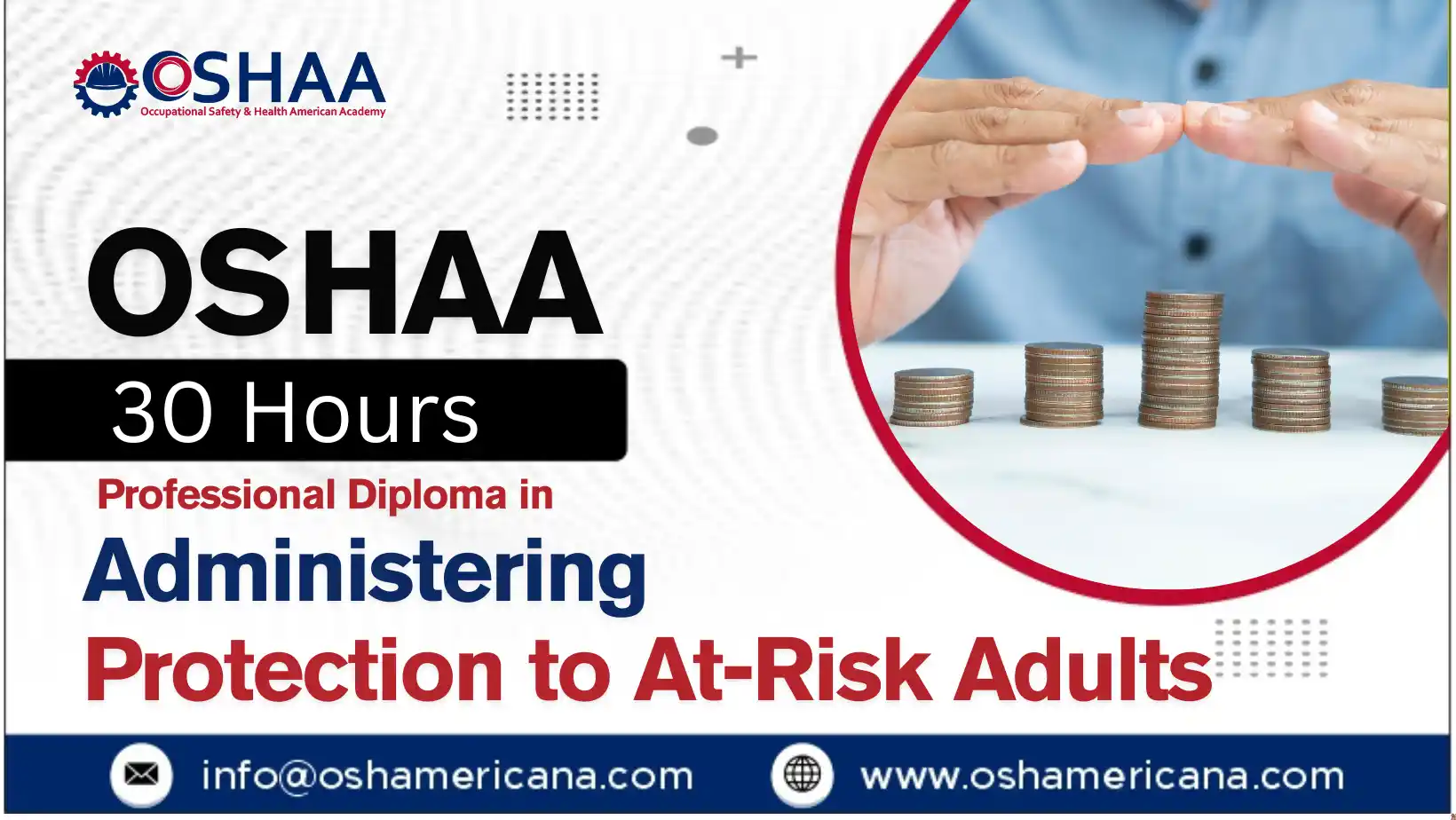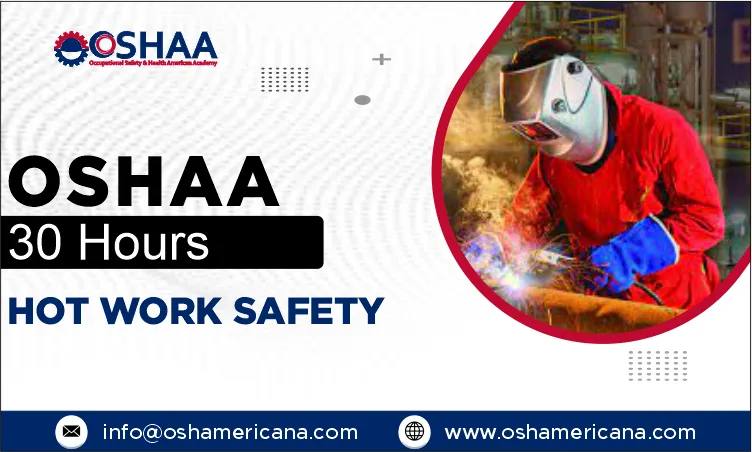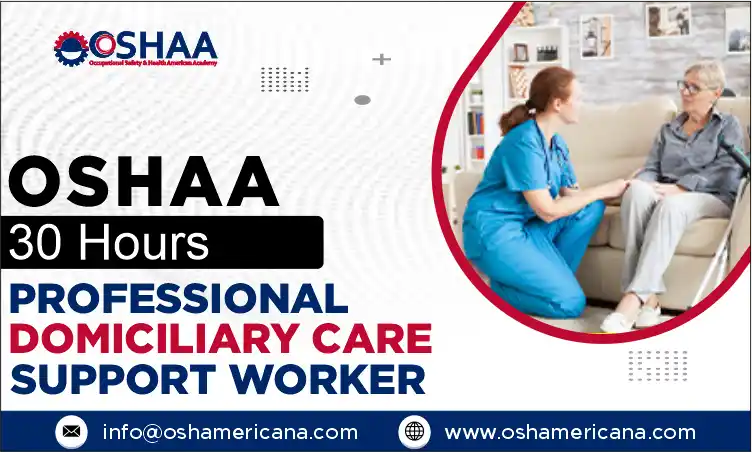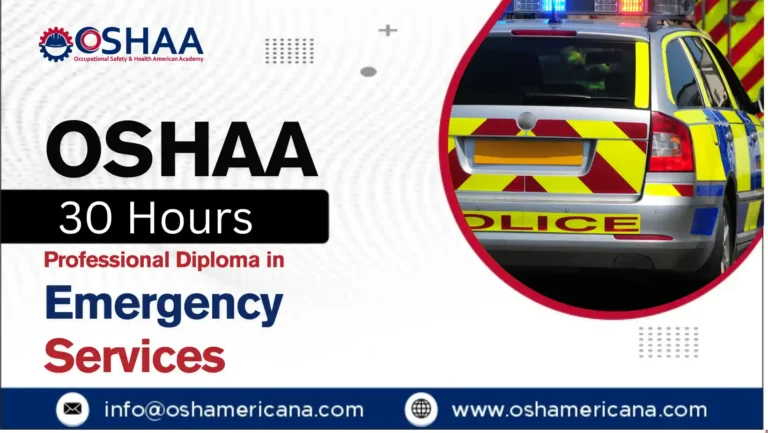Transform Caregiving with Diploma in Administering Protection to Vulnerable Adults
Protecting vulnerable adults from abuse, neglect, and exploitation is a critical responsibility across health, social care, and community services. The OSHAA 30-Hours Diploma in Administering Protection to At-Risk Adults equips participants with the essential knowledge and skills needed to identify, prevent, and respond to risks faced by adults in vulnerable situations. This comprehensive training supports professionals in promoting safety, dignity, and wellbeing for those at risk.
Participants will develop a clear understanding of the legal and ethical frameworks governing adult safeguarding, including key legislation and policy guidance. The course emphasises recognising different types of abuse, understanding risk factors, and applying effective intervention strategies. Participants learn to work collaboratively with multi-agency teams to ensure the protection and support of at-risk adults.
Effective communication and record-keeping are integral components of the course, enabling participants to document concerns accurately and liaise with relevant authorities. The training also addresses the role of advocacy and empowerment in safeguarding practice, ensuring that adults’ voices are heard and respected.
Upon completion of the OSHAA 30-Hours Diploma in Administering Protection to At-Risk Adults, participants will be prepared to implement best practices in safeguarding within their professional roles. This qualification is valuable for social workers, healthcare practitioners, care providers, community workers, and anyone involved in supporting vulnerable adults.
OSHAA 30-Hours Diploma in Administering Protection to At-Risk Adults
Study Units
Learning Outcomes
Introduction to Adult Safeguarding and Protection (3 hours)
- Understand the principles and purpose of adult safeguarding
- Recognise the importance of safeguarding within health and social care settings
- Identify adults who may be at risk and the factors that contribute to their vulnerability
- Appreciate the role of safeguarding in promoting dignity, safety, and respect
Types of Abuse and Risk Indicators (4 hours)
- Identify various forms of abuse including physical, emotional, financial, sexual, and neglect
- Recognise common signs and indicators of abuse in at-risk adults
- Understand the impact of abuse on individuals and their support networks
- Learn strategies for early detection and prevention of abuse
Legal Frameworks and Safeguarding Legislation (3 hours)
- Gain knowledge of key UK safeguarding legislation and policy guidance
- Understand legal duties and responsibilities of professionals involved in safeguarding
- Explore the implications of the Care Act, Mental Capacity Act, and Human Rights Act
- Learn how to apply legal principles to safeguarding scenarios
Roles and Responsibilities in Safeguarding (3 hours)
- Understand the different professional roles in safeguarding adults
- Recognise individual responsibilities in reporting and responding to concerns
- Explore how roles interact within the safeguarding process
- Develop accountability and professional boundaries in safeguarding practice
Risk Assessment and Personalised Safeguarding Plans (4 hours)
- Learn how to assess risk effectively in a safeguarding context
- Understand how to develop individualised protection and support plans
- Apply person-centred approaches to ensure the needs and preferences of individuals are prioritised
- Identify appropriate interventions based on assessed risks
Reporting Procedures and Case Management (5 hours)
- Understand the procedures for reporting safeguarding concerns accurately and promptly
- Learn how to follow organisational policies and national safeguarding protocols
- Gain skills in managing safeguarding cases from initial concern to resolution
- Understand the importance of documentation and evidence in case management
Multi-Agency Collaboration and Information Sharing (3 hours)
- Explore the role of multi-agency working in safeguarding
- Understand best practices in information sharing while maintaining confidentiality
- Identify barriers to effective collaboration and how to overcome them
- Learn how to contribute constructively to case conferences and safeguarding meetings
Communication and Record-Keeping in Safeguarding (3 hours)
- Develop effective communication skills for discussing sensitive safeguarding issues
- Understand the role of documentation in protecting individuals and professionals
- Learn techniques for maintaining clear, accurate, and timely records
- Ensure compliance with legal and organisational record-keeping standards
Empowerment, Advocacy, and Person-Centred Approaches (2 hours)
- Understand the principles of empowerment and how they support safeguarding
- Recognise the role of advocacy in giving voice to vulnerable adults
- Apply person-centred practices to uphold choice, control, and consent
- Promote independence while ensuring protection and support
- Develop a comprehensive understanding of adult safeguarding principles and practices
- Gain up-to-date knowledge of UK safeguarding laws, including the Care Act and related policies
- Learn to identify signs of abuse, neglect, and exploitation in various care and community settings
- Build confidence in carrying out risk assessments and creating personalised safeguarding plans
- Enhance professional skills in documenting concerns and following correct reporting procedures
- Improve communication and multi-agency collaboration for effective safeguarding outcomes
- Understand the importance of advocacy, empowerment, and person-centred care in safeguarding work
- Equip yourself to act swiftly and appropriately in safeguarding emergencies and complex cases
- Receive a recognised qualification that supports career advancement in health, social care, and support services
- Strengthen your ability to contribute to safer, more respectful environments for vulnerable adults
The OSHAA 30-Hours Diploma in Administering Protection to At-Risk Adults is designed for:
- Participants working in health, social care, or community support roles who are responsible for safeguarding adults
- Care providers, support workers, and residential care staff seeking to enhance their understanding of adult protection
- Healthcare professionals including nurses, therapists, and allied health workers involved in frontline care
- Volunteers and charity workers supporting vulnerable individuals in community-based services
- Managers and supervisors in care settings who oversee safeguarding procedures and staff responsibilities
- Individuals looking to enter the adult care sector with a strong foundation in safeguarding principles
- Professionals in education, housing, and public services who may encounter safeguarding concerns in their work
This course is suitable for both those new to safeguarding and those aiming to strengthen their knowledge and practice in protecting at-risk adults.







